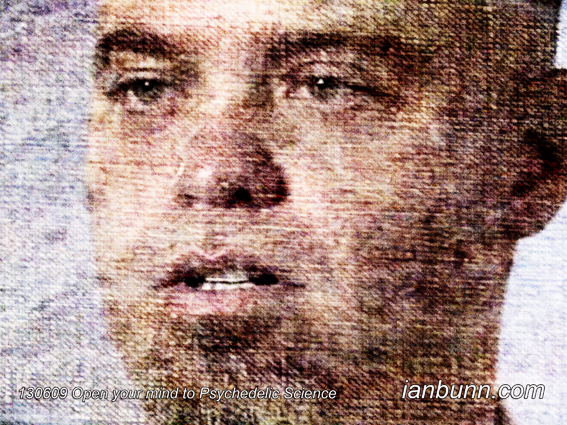 Open your mind to Psychedelic Science (June 9 2013)
Open your mind to Psychedelic Science (June 9 2013)
Greg Miller the American news correspondent on Science with a focus on neuroscience and other areas of biological, behavioral, and social science has published an article on Wired titled ‘Open Your Mind to the New Psychedelic Science’ in which he states “Timothy Leary really screwed things up for science. By abandoning the scientific method for a mystical embrace of hallucinogenic drugs, the Harvard-professor-turned-LSD-evangelist became a symbol of ’60s-era drug-fueled degeneracy. Worse, the ensuing backlash pushed these drugs underground and caused an enormously promising field of research to go dormant for nearly half a century. …But the times they are a-changin’. In recent years, a small cadre of scientists has cautiously rekindled the scientific study of psychedelics. …they reported new findings on how these drugs scramble brain activity in ways that might help explain their mind-bending effects. They’re also slowly building a case that these drugs might help people with depression, anxiety and other disorders. Roughly a dozen small clinical trials are now underway worldwide. But the idea isn’t “take two tabs of acid and call me in the morning.” Instead, these trials are testing the idea that psychedelics taken in a therapist’s office as part of a series of psychotherapy sessions can make talk therapy more effective. …The classic psychedelics, including psilocybin and LSD, stimulate receptors for serotonin, a neurotransmitter that’s also targeted, albeit in different ways, by approved antidepressant and anti-anxiety drugs like Prozac and Zoloft. …People in the grips of depression, the thinking goes, are trapped in an endless cycle of critical self-examination, and a little neural desynchronization might help them reboot. …Psychedelic scientists still face obstacles at every step of the process, from getting research funding, to getting the compounds themselves, to publishing the findings…”
Inspired by Greg Miller, Wired ow.ly/l5yba Image source Facebook ow.ly/l5xiZ
